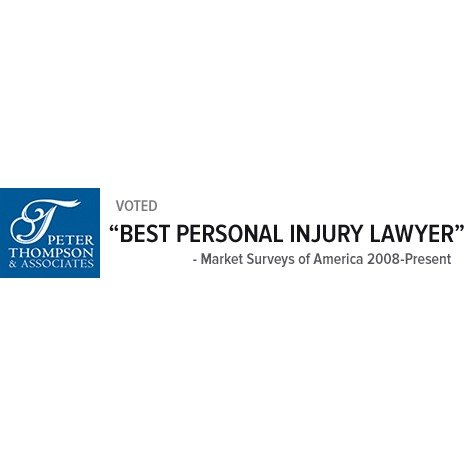Best Toxic Mold Lawyers in Portland
Share your needs with us, get contacted by law firms.
Free. Takes 2 min.
List of the best lawyers in Portland, United States
About Toxic Mold Law in Portland, United States
Toxic mold refers to the growth of certain types of mold that can produce harmful toxins, leading to health issues. In Portland, United States, mold is a common problem due to the city's climate. Toxic mold can grow in homes, workplaces, or other buildings, and it is important to understand the legal aspects surrounding this issue to protect your rights.
Why You May Need a Lawyer
There are various situations where you may need a lawyer specializing in toxic mold law:
- If you or your family members have suffered health problems due to toxic mold exposure.
- If your landlord or property owner has failed to resolve a mold issue in your rental property.
- If you have suffered property damage or financial losses due to toxic mold.
- If you are a property owner or landlord facing a lawsuit related to toxic mold.
- If you need assistance in understanding your rights and legal options regarding toxic mold issues.
Local Laws Overview
Understanding the local laws related to toxic mold in Portland, United States is crucial for protecting your rights. Here are some key aspects:
- Oregon law requires landlords to maintain rental properties in a habitable condition, which includes addressing mold issues that may pose health risks.
- If your rental property has persistent mold problems that impact your health, you may have the right to terminate your lease or demand repairs.
- It is crucial to document the mold issue, notify your landlord in writing, and give them a reasonable opportunity to resolve the problem before seeking legal action.
- If your landlord fails to address the mold issue or retaliates against you for reporting it, you may have the right to pursue legal action.
Frequently Asked Questions
Q: What are the common health problems caused by toxic mold exposure?
A: Toxic mold exposure can lead to respiratory issues, allergic reactions, headaches, skin irritation, fatigue, and other health problems.
Q: How can I prove that my health problems are caused by toxic mold exposure?
A: It is essential to consult a medical professional who can evaluate your symptoms and conduct relevant tests to determine the link between your health issues and mold exposure.
Q: Can I break my lease if my rental property has toxic mold?
A: If your landlord fails to address the mold issue and it significantly affects your health, you may have grounds to break your lease. Consult a lawyer specializing in toxic mold law for guidance.
Q: What should I do if my landlord is not taking my mold issue seriously?
A: Document the mold problem with photographs or videos, notify your landlord in writing, and give them a reasonable timeframe to resolve the issue. If they do not respond, consider seeking legal advice.
Q: How long do I have to file a toxic mold lawsuit in Portland?
A: The statute of limitations for toxic mold lawsuits varies. It is advisable to consult a lawyer promptly to understand the time limits that apply to your specific case.
Additional Resources
Here are some resources that can provide further assistance:
- Oregon State Bar: https://www.osbar.org/
- Oregon Department of Justice: https://www.doj.state.or.us/
- Oregon Housing and Community Services: https://www.oregon.gov/ohcs
Next Steps
If you require legal assistance regarding toxic mold issues in Portland, United States, follow these steps:
- Research and select a lawyer experienced in toxic mold law.
- Gather all relevant documentation, including photographs, lease agreements, correspondence with your landlord, medical records, and any evidence of financial losses.
- Schedule a consultation with the chosen lawyer to discuss your case and understand your legal rights and options.
- Follow the lawyer's guidance on the best course of action based on your specific circumstances.
- Maintain open communication with your lawyer throughout the legal process.
Lawzana helps you find the best lawyers and law firms in Portland through a curated and pre-screened list of qualified legal professionals. Our platform offers rankings and detailed profiles of attorneys and law firms, allowing you to compare based on practice areas, including Toxic Mold, experience, and client feedback.
Each profile includes a description of the firm's areas of practice, client reviews, team members and partners, year of establishment, spoken languages, office locations, contact information, social media presence, and any published articles or resources. Most firms on our platform speak English and are experienced in both local and international legal matters.
Get a quote from top-rated law firms in Portland, United States — quickly, securely, and without unnecessary hassle.
Disclaimer:
The information provided on this page is for general informational purposes only and does not constitute legal advice. While we strive to ensure the accuracy and relevance of the content, legal information may change over time, and interpretations of the law can vary. You should always consult with a qualified legal professional for advice specific to your situation.
We disclaim all liability for actions taken or not taken based on the content of this page. If you believe any information is incorrect or outdated, please contact us, and we will review and update it where appropriate.








